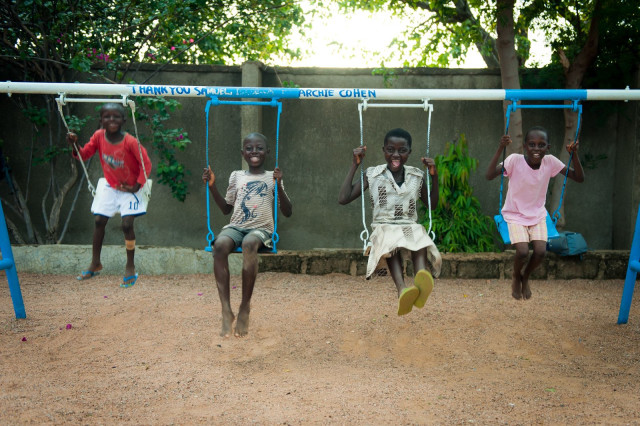Mama Laadi and the Spirit Children Foster Home
Mama Laadi Awuni (51), a former street child and nurse has dedicated her life to caring for vulnerable children in Ghana. While working as a nurse in Bolgatanga District 20 years ago, she started taking in homeless children who were shunned by their families because of their disabilities.
When Mama Laadi finally had her own place to stay, a one-room apartment, she took in 12 children. When her employers (who were paying for her apartment) found out she was living with these children they kicked her out.
She later found alternative accommodation, but faced the same problem because her neighbors were not supportive of her living arrangements. “The other tenants started complaining and I was eventually chased out and lived with the children on the street to make sure someone was taking care of them,” she says.
In 2004, while living on the street she met a volunteer from the UK who was working for, Afrikids . A child rights and community development organisation working to alleviate poverty in northern Ghana. Mama Laadi says the organisation raised enough funds to get her off the street and rent a two-bedroom apartment for her and the children. “Two years later, and enough money was raised for me to move into a five-bedroom house with the now 21 children I had taken in.”
Most of the children who live at Mama Laadi’s Foster Home are either abuse victims, or “spirit children” children born with some form of disability and deemed to be possessed by evil spirits. Those shunned and end up living on the street are the lucky ones, because in most families spirit children are killed by local medicine men with poisonous concoctions. Ayariga Ismann who works as the administrator at the home, says spirit children are locally referred to as “kinkiriku”. “These children are sometimes also poisoned because they are born at a time the family is going through some form of tragedy and are blamed for the misfortune,” she says.
The children who come into the home now are often identified by a community member. After an investigative social report is done in conjunction with the department of social welfare, the child is either placed at Mama Laadi’s, or fostered by a family that can take them in. “If a child is placed with a family we conduct periodic monitoring visits to the child,” says Ayariga.
With the support of her sponsors Mama Laadi has had over 100 street children pass through her home. Some of them have gone on to finish tertiary and are employed, while others are still in school. “The home currently houses 29 children who are between two and 18 years old.”
As a way to help the home become self sufficient, a five-bedroom house bought by Afrikids was turned into a guest house for tourists in 2011. It has five permanent staff and by the end of this year, should be able to fund the foster home with no help from the funders.
Although Mama Laadi is still uncertain whether the guest house will solely manage to keep the home afloat she says she knows this is the work she was called to do. “These children have nowhere else to go and I love them deeply,” she says.
Photography: Louis Bryant III






Comments
Post a Comment